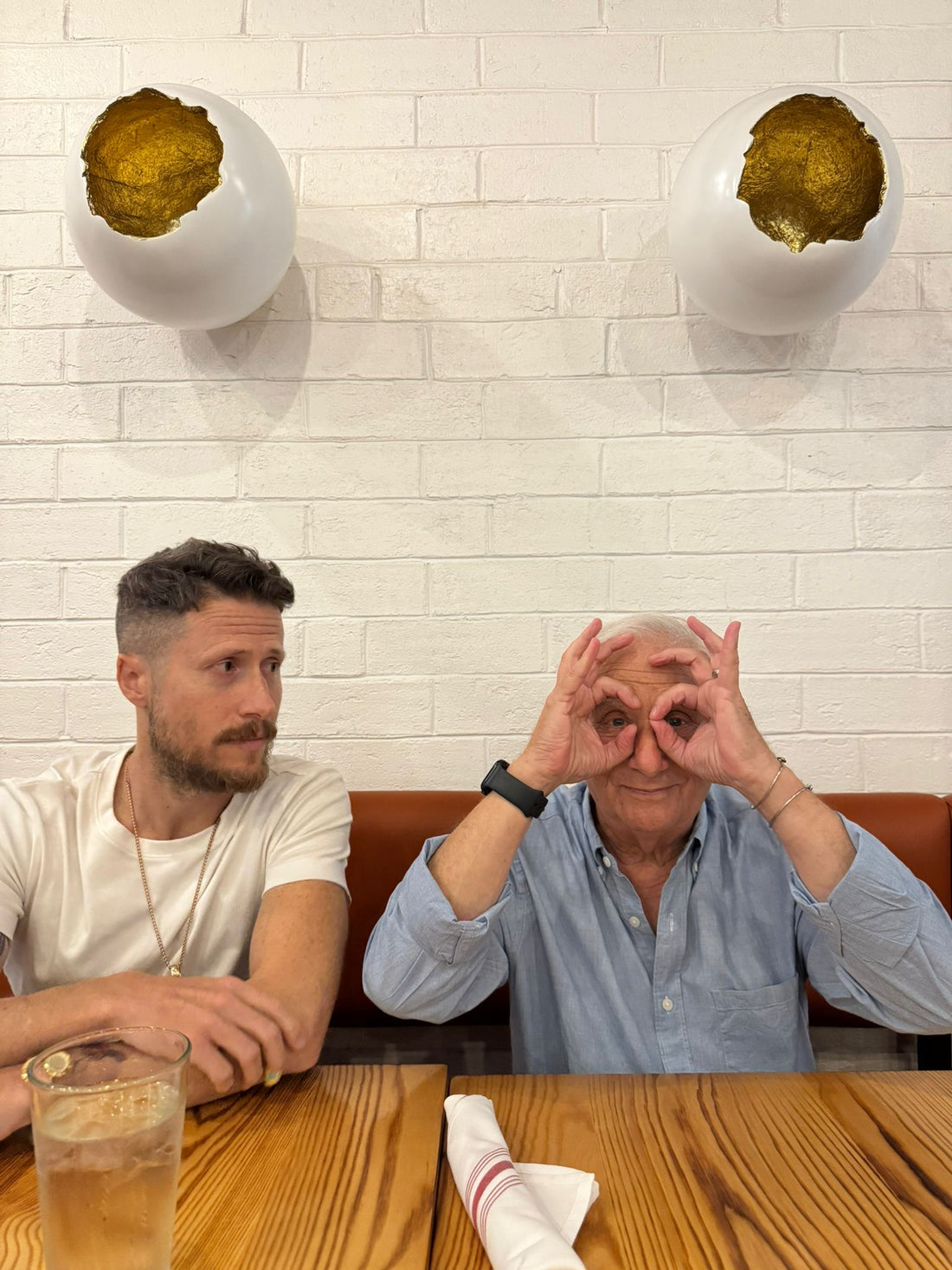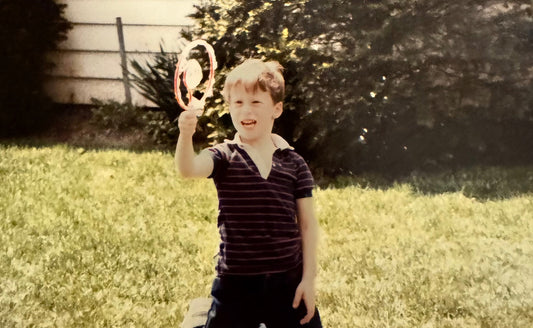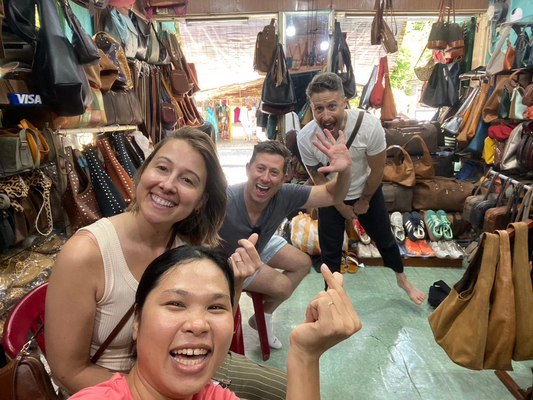
Put My F*cking Picture on the Fridge
A Love Letter to My Dad. And a Note on What Gets in the Way.
I was in the United States last month to be with my dad. Among other things.
Those other things? One was a summit I facilitated in Washington DC. A gathering of grantmakers, visionaries, skeptics, and bridge-builders in the equine space. And like most things in my life these days, I didn’t script my remarks in advance. I just waited for something honest to come through.
And it did. Which brings me back to my dad.
Prior to my trip to DC, I sat with Dad on the porch of his newly built home in Greensboro, North Carolina and told him I was writing a book. Pre-selling it even. Putting myself on the hook with the whole world. It’s a big milestone and a vulnerable moment to say the least.
I thought maybe we’d have one of those Hallmark scenes. A little pride, a little atta boy, maybe even a “this is why I became a father” kind of moment.
But no.
My dad, who I love dearly and who has shaped so much of how I see the world, went full philosopher. He starts dissecting the premise. Offers counterpoints. References ancient texts. It’s like he was suddenly appointed to the editorial board of the Harvard Review.
I finally had to stop him. And I said:
“Dad, I don’t need a symposium. I just need you to put my f*cking picture on the fridge.”
He didn’t catch my drift at first. “What do you mean?” he asked. “I don’t know, Dad,” I said. “Maybe tell me you’re proud of me. How impressed you are. Maybe even ask [and this might sound crazy] how you can buy the book yourself. To be the first to own it. To tell your friends. Crazy, I know.”
He laughed. I laughed too. Because it wasn’t about proving anything. It was just one of those moments to name what was happening underneath. Because here’s what I haven’t said yet: my dad has cancer. Again.
It’s round two. Chemo, the whole deal. And at his age, this round rearranges your priorities whether you want it to or not. And even in the midst of it, he still wants to meet me on an intellectual playing field. He still wants to engage. To contribute. To show me he’s still got it.
That’s his love language, I suppose. And mine? I think it’s moments like this when I can name the thing underneath the thing. Trying to get better. Not just at ideas, but at showing up for one another.
That moment with Dad stayed with me. So when it came time to facilitate, telling the story felt inevitable. Not to spill my baggage or to win anyone over. But to ask them to listen in a way that kept the conversation open.
Because open is where trust lives. And trust is the soil where ideas grow.
The takeaway? I mean, yeah, presence matters. But I’m not going to insult your intelligence with a motivational poster. You already know that.
What’s harder to admit is this:
We don’t lose connection because we don’t care. We lose it because we care… awkwardly. We miss each other because we care in clumsy, overcompensating ways. Sure, we show up with good intentions but we reach for the wrong tools.
We rush to fix when someone just needs support. We offer suggestions when what’s needed is solidarity. We try to be useful instead of being human. And when we do that, we miss each other. The very people we’re trying to reach.
We miss the intention behind the effort and the quiet cost it took for someone to show up at all.
So here’s the fridge-worthy takeaway: The people we love? Even the ones we work with? Hell, anyone we’re trying to build something with? They don’t always need us to solve the problem. They just need us to be present. To hold space and witness the effort.
To see them.
It’s funny because moments like the one I had with my dad, the ones we so often fumble, are the same ones that quietly derail the kind of collaboration that even the highest-performing CEOs would fake a Wi-Fi outage to avoid.
Because being that present, that tuned in, is not natural. It’s not even instinctive. It’s a choice and it takes practice. Otherwise, we have conflict and conflict is like water…it just finds a way in, especially among people who love one another.
I often say that unremarkable relationships are natural. But trust, especially under pressure, is not. The good news? We’re not broken or uniquely dysfunctional. What we’re dealing with, the friction, the false starts, the misfires in collaboration, aren’t signs of failure. They’re signs that we’re human. That we’re in it and that we care.
We talked a lot at the Summit about shared interests over fixed positions. I can’t take credit for that. That was the handiwork of keynote speaker Jaime Notter, who gave us a powerful roadmap for the conversations that followed.
But I added this: we can’t focus on shared interests if we’re not truly present with one another. If we can’t set down our judgments, our brilliant counterpoints, or even our well-earned frustrations just long enough to really hear someone.
We have to quiet the part of the brain that’s always scanning for threats or trying to win the room. That’s what I want you to take from this, not as a strategy but as a mindset. I know it might sound a little new-age but it’s not. It’s neuroscience.
Collaboration isn’t a productivity hack. It’s a biological impulse. We’re wired to connect. We’ve always been wired to connect. We just haven’t always been great at it. So start there. With a pause. A little nod. Your hand on someone’s back.
Or hell, just a damn magnet and a f*cking picture.
P.S. Love you, Dad.




